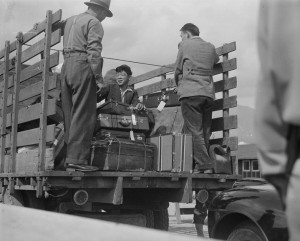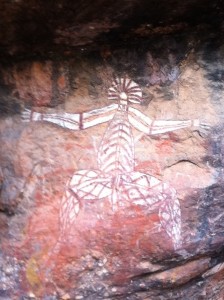When you move to another country, you know you’re going to change but you don’t know exactly how.
You come with your suitcase, a bit of money and your language. You carry your beliefs and a set of values you’re (most of the time) not conscious of.
That’s absolutely normal, you’ve never known anything else.
You’re so used to them. You take them for granted. Not because you’re narrow-minded, uneducated or despising the local culture. Not at all.
Just because those values are so grounded, you’re not aware you could question them in the first place.
I see the doubt in your eyes. “Anne, of course, I know that there are other cultures out there! I know that people think differently. Therefore I pay attention to what I do, I’m respectful of others. I don’t fall into this trap.”
Well, I bet you do. We ALL fall into this trap, assuming that others share our values. And I’m going to prove it to you.
But before getting to the heart of the matter, you may wonder “So what? Why bothering to understand all the values people live by?”
Because you could lose the face, you could lose your job, you could lose money.
Here is an example of a cross-cultural mistake which cost a leading worldwide company 5 billion dollars.
Two weeks ago, I did a trip in the Northern Territory of Australia as part of my endeavor to discover more about the country we now live in.
I came across the story of Jeffrey Lee.
Jeffrey is the last survivor of the Djok clan, an Aboriginal community located in the Northern Territory of Australia, in the middle of Kakadu National Park. His people have been looking after their country, called Koongarra for thousands of years. Jeffrey was born there. His grandmother used to take him on her shoulders. She taught him all the stories of their country, the rocks over here, the floodplains over there, the trees and the animals. She told him the story of Namarrgon, the lightning man, painted in Nourlangie Rocks, a famous touristic site located 3 kilometers away.
Namaargon is one of the Aboriginal creation ancestors. The Aboriginals argue that he’s still present today. He’s responsible for the big thunderstorms in the region during the wet season in this tropical climate.
I see you smiling. You think (like me) this explanation is a bit naïve, childish. We’d rather look up on Wikipedia and explain that lightning is a “massive electrostatic discharge caused by unbalanced electric charge in the atmosphere”. This appeals much more to our scientific upbringing.
But what you may not know is that the story of Namarrgon and other Aboriginal stories have been passed on from generation to generation for more than 20 000 years! If we compare it with other civilizations like ancient Rome which lasted for 2100 years, Ancient Greece 1400 years, Ancient Egypt 3000 years and the Mayas 2000 years, Aboriginals have been living more than 20 000 years. So Jeffrey hangs on to this story.
In the 70’s, some white people became passionate about Koongarra. They discovered something in the ground, something very interesting, something called uranium. Lots of uranium: 14000 tons. Worth more than 5 billion dollars. They wanted to dig it, they wanted to mine it. Koongarra should become an open pit mine. But the mining company couldn’t do anything without the approval of Jeffrey Lee’s family. Thirty years ago, he was still a child. So the white people talked to his father and his grandfather. They offered them houses, cars and many other things but nobody told them about uranium and what it can do. His father and grandfather were about to give their consent. But the works were delayed.
Time passed. Jeffrey grew up. His father and grandfather passed away. He’s now the only one left, the one who has to decide. But he has learnt that there’s poison in the ground. And he remembered the stories told by his grandmother. “There are places on this land where the rainbow serpent has entered the ground. Those are sacred places. You can’t go to them. You can’t even talk about them. If you disturb that land, bad things will happen. Floods, earthquake, disaster, lots of people will die.” Jeffrey believes in these stories. He doesn’t want something bad to happen.
Even if he has been offered a huge amount of money to give his approval.
Just a little word from him, 3 letters, YES, and he would become one of the richest men in Australia.
He has been thinking.. a lot. He has got a huge pressure on his shoulders.
He has had a lot of sleepless nights, imagining what allowing mining would mean: cutting trees, killing animals, disturbing sacred places. This would be the end of his country.
With great courage, he stood up. Alone against a huge corporation, the world leader in nuclear energy, a French corporation employing 47000+ people with a $ 8.8 billion turnover.
He said NO to mining.
He wanted to have Koongarra listed in the World Heritage with Kakadu National Park instead. Koongarra has been added a few months ago to this famous list, ironically in a meeting held by UNESCO… in Paris.
Jeffrey knows that his land is now protected and safe forever.
He didn’t want the money. He was not interested in the money.
“I don’t own the land. The land owns me,” he said. Click to tweet
This lesson in cross-cultural competence cost the French company more than 5 billion dollars.
Offering money to someone whose culture does NOT include the concept of possession is as inappropriate as cooking a T-Bone steak for your best friend… who is vegetarian.
So next time you travel the world, live in a new place or work with foreigners:
- Don’t RUSH!
- Listen and watch… a lot
- Study the history of the country, the region, the town
- Ask old people to tell you about themselves or ask people to tell you what stories their grandparents told them
- Watch old TV shows or read old literature (translated if necessary)
- Learn the local folklore and the origins of idioms and expressions
- And most of all, try to discern the intrinsic beliefs and motivations of others. Never assume you know them.
There is no magic recipe to avoid making cross-cultural faux-pas. Empathy, compassion and patience are some of the ingredients. The beauty is in the wealth of all our human heritage.
Do you have related stories of cultural misunderstanding you’d like to share? I’d love to hear them in the comments below, even if they’re not worth $5 billion!

